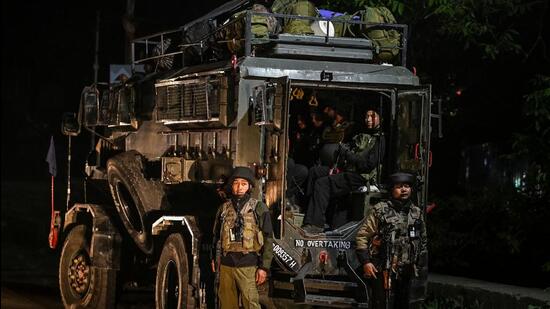India Responds to Pahalgam Attack: 5 Tough Moves to Isolate Pakistan
India has launched a no-nonsense diplomatic and strategic offensive against Pakistan in the aftermath of the Pahalgam terror attack, which resulted in 26 deaths, including that of a foreign national. Initial investigations confirmed that the attackers had direct support from terror networks based in Pakistan, leading to urgent action from India’s Cabinet Committee on Security (CCS).
The response is bold, focused, and unprecedented in scope. India has rolled out a 5-point strategy aimed at cutting off Pakistan’s access to Indian goodwill, resources, and diplomatic space.
1. Indus Waters Treaty Suspended: A Historic Move
In a sharp pivot from decades of diplomatic restraint, India has suspended the Indus Waters Treaty, a landmark agreement signed in 1960 that governs the use of rivers shared by the two countries.
This treaty, facilitated by the World Bank, has been upheld even during times of war. By suspending it, India is weaponizing water diplomacy, sending a strong signal that terrorism and cooperation cannot coexist. This decision is expected to spark global debate and could potentially reshape Indo-Pak water politics.
2. Attari-Wagah Border Sealed: Trade and Travel Halted
India has also sealed the Attari-Wagah land route, the most prominent entry and exit point between India and Pakistan.
This includes immediate suspension of goods and civilian movement across the border. Only those who already crossed with valid documents can return by May 1, 2025. The closure affects thousands and is meant to underscore India’s intent to freeze people-to-people contact unless Pakistan cracks down on terrorism.
3. SAARC Visa Exemption Revoked for Pakistanis
In a direct hit to regional diplomacy, India has revoked the SAARC Visa Exemption Scheme (SVES) for Pakistani nationals. This means all existing SVES visa holders from Pakistan must leave India within 48 hours, and no new exemptions will be granted.
This move targets diplomatic, cultural, and business delegates who once enjoyed preferential treatment under the SVES framework. Analysts view this as India’s message to SAARC members that regional unity is impossible without collective action against terror.
4. Military Attachés Expelled: Diplomatic Chill Deepens
India has declared all Pakistani military, naval, and air advisors posted in New Delhi as ‘Persona Non Grata’. These defense personnel have been ordered to leave the country within seven days.
This is not a routine diplomatic shuffle—it’s a strong, calculated signal of India’s disapproval. In a reciprocal move, India is also withdrawing its own military attachés from Islamabad, reflecting a deep freeze in defense diplomacy.
5. Diplomatic Staff Cut in Islamabad: Scaling Down Bilateral Ties
India will reduce the strength of its High Commission in Islamabad from 55 to 30 diplomats by May 1, 2025. This decision marks a significant step toward downsizing formal engagement with Pakistan.
It also limits Pakistan’s ability to engage with Indian diplomats, essentially placing Indo-Pak relations on life support until meaningful change is seen in Pakistan’s counter-terrorism commitments.
Why This Matters: India’s New Playbook on Terrorism
India’s approach this time is deliberate and strategic—not reactionary. Instead of just a military response, New Delhi has taken measures that impact Pakistan’s economy, diplomacy, and access to shared resources. The move reflects a growing belief within Indian policy circles that terrorism must incur diplomatic and economic costs, not just condemnation.
These steps will not only hurt Pakistan’s international image but also strain its regional partnerships. India’s message is loud and clear: cross-border terror will now be met with multi-dimensional retaliation.
Global Community Reacts
The international response has been mixed. While many countries including the US, UK, France, and Japan have backed India’s right to defend itself, others have urged restraint.
The UN Secretary-General has appealed for dialogue, even as India maintains that talks and terror cannot go hand-in-hand. Pakistan, on its part, has denied any involvement in the attack, calling India’s actions “provocative and unwarranted.”
What Lies Ahead?
This 5-point plan is a potential turning point in Indo-Pak relations. While no military action has been announced yet, the scale and severity of India’s diplomatic steps suggest that patience is running thin.
Whether this strategy will lead to a behavioral change in Pakistan remains uncertain. But one thing is certain: India has shifted gears, and the global community is watching closely.
